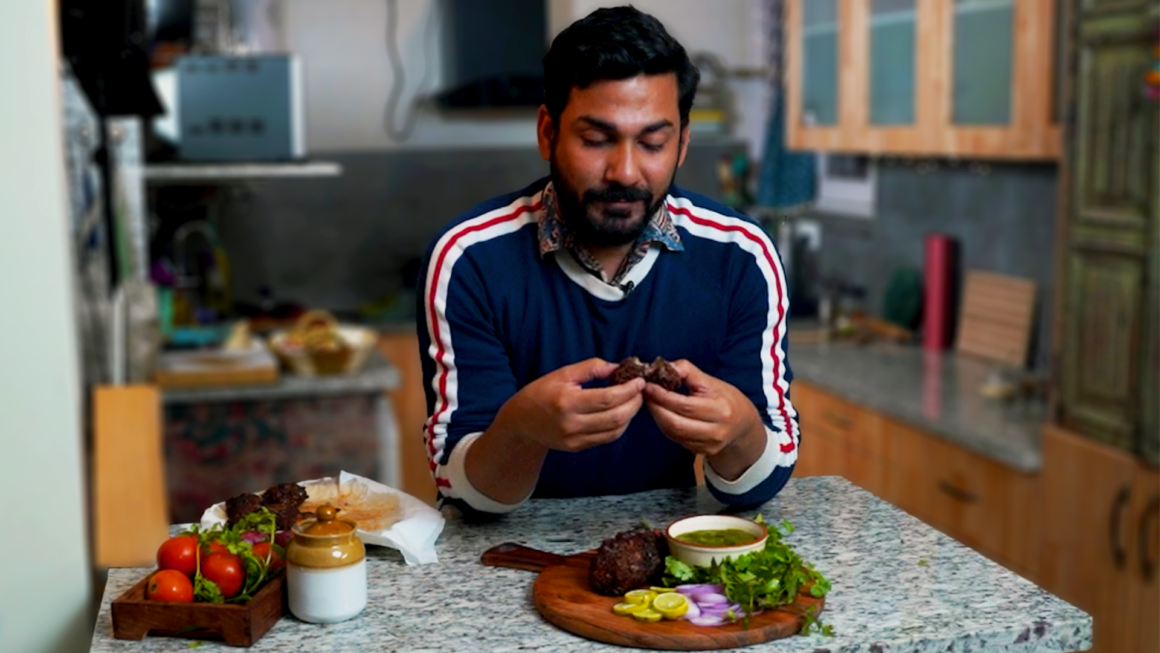A conversation over good food is always remembered.
People forget everything but food.
Sadaf believes so. He considers it one of the two most significant life lessons that cooking has taught him. The second? “That it is absolutely okay to fail. It is okay if you burn your food or put extra salt or chillies in it. It helps you understand yourself.” He advocates Rafiki’s words, “The past can hurt. But the way I see it, you can either run from it or learn from it.
These are answers I had to draw out of him, over multiple conversations. Some in person, some over calls; some I got from him in writing, because how else was I ever going to make sense of all the garbled monologues? He spoke a mile a minute without ever really taking the lid off his simmering thoughts.
Our first chat was an hour long farrago of brevity and balderdash that started off with food and ended at a brunch tuck-n-talk plan.
A week later, peeling through the menu, he noted aloud, “I never order black when I’m out. I’ve realized I make a better one at home.” At some point during the incessant talking we ordered brunch and coffee (not black). The afternoon was spent discussing the possibilities of kebabs and why Sadaf loves them a little too much.
In a short interlude while we were quietly eating, I probed deeper to understand where his fascination with all things food came from.
“My mother and I shared a very unique and peculiar interest in food. We both love feeding and cooking for people. When I started cooking properly, I would often avoid cooking what my mother would, because what’s the point? First, I am never going to be better than she is, and second, give diversity. Two people can cook two different kinds of food.
I learned how to bake a cake and make a delicious pot of biryani from her. We only baked cake four times a year, covering each of our birthdays. I would sit with her holding the utensils where she’d be whisking the batter with her bare hands and I’d lick the batter in the end. That was the most satisfying cake. To date, I enjoy a hearty home-baked teacake a lot more than pastries or cream-loaded cakes.”
This again, he wrote to me much later. That day at brunch when I inquired about his proclivity towards food and what he was working on next, he passively let out that he couldn’t get himself to finish writing his second book since his mother passed away last year. I noticed a sombre speck in his eyes before he returned to his jumpy self in the next blink.
The next few hours were spent animatedly talking about food – my love for eating and Sadaf’s love for feeding people. When all was said and done, an utterly brief dialogue decided the course of our next meeting.
“Sadaf, what would you like to cook?” “Kebabs.”
Three weeks later, we were in the kitchen; the house full of friends.
Sadaf Hussain’s Peshawari Kebabs are something he is allowably proud of. As a general rule, the kebabs never come without annotations and anecdotes.
“In India, Peshawari kebabs are not as well-known, and not many people have heard of this version. Peshawari kebab is also commonly known as Chapli kebab, which comes from the Pashto word Chaprikh (meaning flat).
The spicy flat beef patty is claimed by the North-West Frontier Province and Eastern Afghanistan. The Pakhtun recipe includes meat and wheat flour, so this kabab is lighter. Afghan (origin) ingredients, such as pomegranate seeds and dry coriander seeds, give chapli kababs their peculiar flavour.”
The ingredients were all laid out on the countertop.
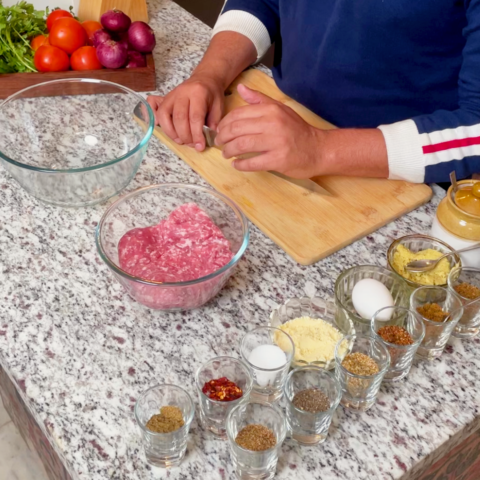
- 500 gms of goat mince
- 3 medium onions
- 2 green chillies
- 2 medium tomatoes
- LOTS of fresh coriander
- 1 tablespoon ginger-garlic paste
- 1 teaspoon crushed carom seeds
- 2.5 tablespoon crushed coriander seeds
- 1 tablespoon crushed cumin seeds
- 1.5 teaspoon dried pomegranate seed powder
- 2 teaspoon crushed red chilli
- 1 teaspoon cumin powder
- 1 teaspoon garam masala powder
- ½ teaspoon black pepper
- Salt to taste
- 1 egg
- Oil and ghee (for frying)
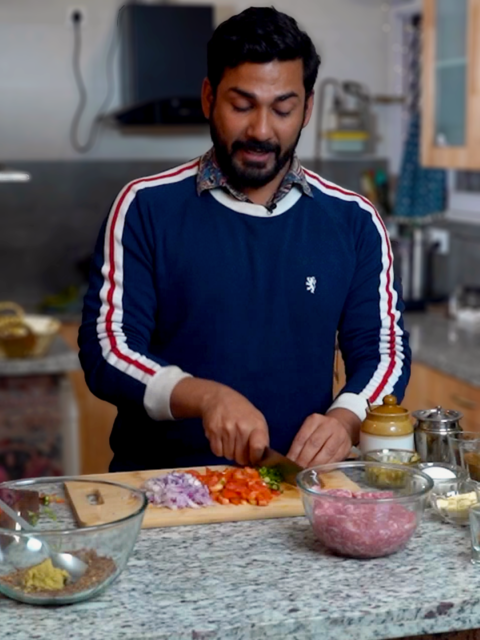
The afternoon was off to a sniffling start as Khansama Sadaf began chopping onions with impressive sleight of hand; followed by the tomatoes, chillies and coriander. He made a medley of all the dry spices, ginger-garlic paste and chopped vegetables first, not particularly giving allegiance to the mentioned quantities. This flavour blend was then worked into the goat mince. When he attempted to crack the egg open in a dramatic fashion and goofed up, he took a dig at himself and giggled. There was never a dull moment.
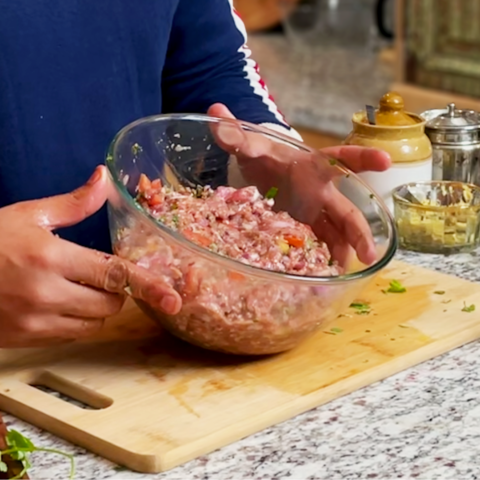
The stories kept coming while he cooked with a spring in his step. You could see that he was doing what he loves the most – feeding people.
He had grown up eating a street-food version of this kebab in his hometown near Ranchi. I asked him if there is a universal rule, a kebab template that he could vouchsafe.
“There is no tip for making the best kebabs. Different people like it differently. But if you like spice-dominant kebabs, then marinating the meat for 12–24 hours is important. It gives a delicious flavour.”
While the meat soused in the masala, a round of pizza and palaver ensued. Of the many hats he wears – a masterchef, an author, a speaker and podcaster – that of a food snob is one he keeps at arm’s length.
“I am far from being a snob. I love eating at street-side places and food joints that break the rules of eating. Eating should be comfortable. You should not be thinking about how to eat or what is the correct way of eating. You should learn the traditional way. But remember, there is no right or wrong; just because a few thousand years ago, someone discovered eating sushi with chopsticks, does not mean in modern times it can’t be challenged. Eating should be simple and easy. You can learn proper manners and etiquettes to avoid being a nuisance, but you should not force your ideas on others simply because you can.”
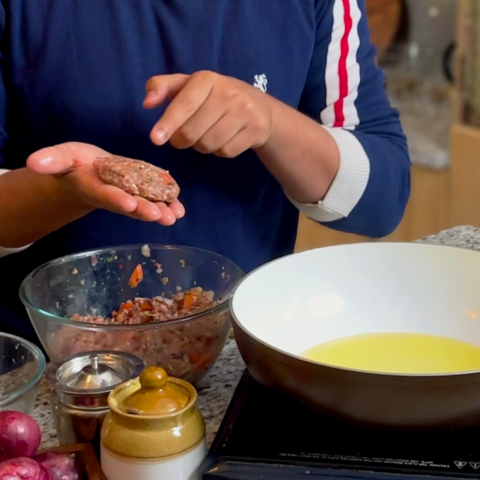
Thick patties slid from his palm into the heating fat, making it pop and dance. Sadaf intently basted each patty, achieving the desired crusty coating he was going for. The house was blanketed in the heavy piquancy of browned meat.
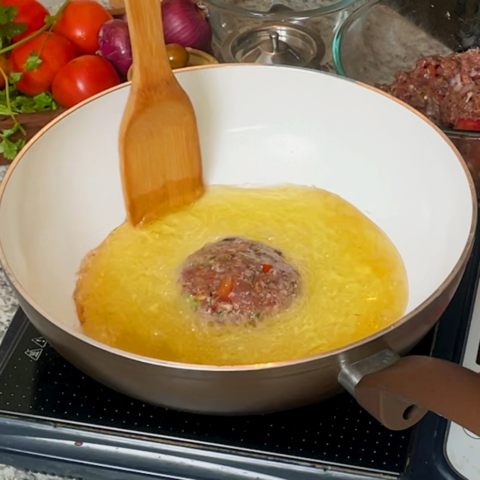
When the kebabs were ladled out, the eating lasted no greater than six minutes. A testament to Sadaf’s success as a kababchi and the incivility of his diners.
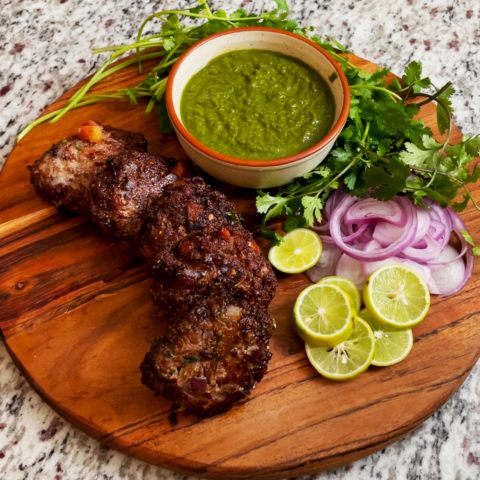
I’ve often wondered if his answers are what they appear to be – extemporary and unguarded. Or does the spontaneity come from years of practice? Does he really love cooking for people and breaking the rules of culinary conformity? But then last week, he sent me a parcel of Kathal biryani, just because he promised that he would. Yes, ‘kathal biryani’.
Translations and detailed descriptions are provided to give a better understanding of the story to people from different cultural backgrounds across the globe.

